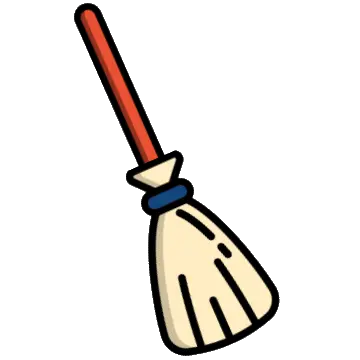Soji
About
Soji is an intelligent yet simple disk cleanup utility that uses both native System.IO file and directory management and COM references to the deprecated cleanmgr tool to tidy up one or more volumes on a Windows system.
Built With
Important Note
Soji is a destructive application by nature in that it deletes files and folders. Take great care when using the --days, --systempaths, and --userpaths arguments.
Getting Started
Install the .NET 8.0 runtime, read the documentation on using the various switches, and start running Soji! 🧹
Prerequisites
.NET 8.0:
winget install Microsoft.DotNet.DesktopRuntime.8
Or
# PowerShell installation of .NET Desktop Runtime 8.0.11 on Windows x64
$ProgressPreference = 'SilentlyContinue'
$appName = 'dotNet8DesktopRuntime'
$workingDirectory = 'C:\ProgramData\_automation\app\Prompter'
$dotnet8path = 'C:\ProgramData\_automation\app\Prompter\dotNet8DesktopRuntime.exe'
$dotnet8url = 'https://download.visualstudio.microsoft.com/download/pr/27bcdd70-ce64-4049-ba24-2b14f9267729/d4a435e55182ce5424a7204c2cf2b3ea/windowsdesktop-runtime-8.0.11-win-x64.exe'
Function Install-Check {
try {
$dotNetVersions = (. "$env:ProgramFiles\dotnet\dotnet.exe" --list-runtimes) -join ' '
} catch {}
if (!($dotNetVersions -match 'WindowsDesktop\.App 8')) {
return $true
} else {
return $false
}
}
if (!(Test-Path -Path $workingDirectory)) {
New-Item -ItemType Directory -Path $workingDirectory -Force -ErrorAction SilentlyContinue | Out-Null
}
if (Install-Check) {
[Net.ServicePointManager]::SecurityProtocol = [Enum]::ToObject([Net.SecurityProtocolType], 3072)
Start-BitsTransfer -Source $dotnet8url -Destination $dotnet8path
cmd.exe /c $dotnet8path /install /quiet /norestart
Start-Sleep -Seconds 5
if (Install-Check) {
return 'Error: .Net Desktop Runtime 8.0 installation failed.'
} else {
return 'Success: .Net Desktop Runtime 8.0 installed'
}
} else {
return 'Success: .Net Desktop Runtime 8.0 is already installed.'
}
Usage
Soji will run just fine without any command-line options passed, but you may want to read up on the options below to see if you have a use-case for them.
Arguments
| Long Name | Short Name | Example | Description |
|---|---|---|---|
--drives | -d | C,D | (Default: All fixed drives) A comma-separated list of volume letters to process. |
--days | -y | 10.1 | (Default: 7.0) The maximum number of days between now and the last write time of files to keep. |
--json | -j | (Default: false) Include JSON file output. | |
--csv | -c | (Default: false) Include CSV file output. | |
--systempaths | -p | "Temp|\.txt$","system32\Temp" | (Default: null) An optional comma separated list of additional paths to scan for files to clean with regex file filtering. |
--userpaths | -u | "AppData\Local\Adobe|\.log$","AppData\Local\Microsoft" | (Default: null) An optional comma separated list of additional user paths to scan with regex file filtering. |
--purge-downloads | (Default: false) Purge all user Downloads folders. | ||
--clean-winsxs | (Default: false) Enable WinSxS component cleanup. | ||
--run-cleanmgr | (Default: false) Enable legacy cleanmgr execution. | ||
--empty-recyclebin | (Default: false) Empty the recycle bin. May still occur when running the legacy cleanmgr. | ||
--winsxs-seconds | (Default: 300) The number of seconds to wait for WinSxS processing when --clean-winsxs or --all is passed. | ||
--all | (Default: false) Enable all possible cleaning tools (--purge-downloads, --clean-winsxs, --run-cleanmgr, --empty-recyclebin). | ||
--debug | (Default: false) Set this flag to enable debug output in the console. |
Examples
Clean all fixed drives with all available cleaners
Soji.exe --all
Clean the C and F drives
Soji.exe --drives C,F
Clean the C drive including all user Download directories in PowerShell
Start-Process -FilePath "Soji.exe" `
-ArgumentList "--drives C", "--purge-downloads" `
-Wait
Clean all fixed drives and read back the file JSON report in PowerShell
Start-Process -FilePath "$pwd\Soji.exe" `
-ArgumentList "--json" `
-Wait
$sojiFileReport = (ConvertFrom-Json -InputObject (Get-Content -Path "$pwd\SojiLogs\Soji-files.json")).Files
Clean all fixed drives with all available cleaners including the following:
1. All .txt files that start with "Arigatou" under ?:\MyFolder\MySubfolder
2. All .log files under the user paths ?:\Users\<Username>\AppData\MyAppPath\Logs
Any target files must have a last write time greater than 21.5 days.
Read back the file CSV report in PowerShell.
Start-Process -FilePath "$pwd\Soji.exe" `
-ArgumentList `
'--csv', `
'-p "MyFolder\MySubfolder|^Arigatou.*\.txt$"', `
'-u "AppData\MyAppPath\Logs|\.log$"', `
'--days 21.5' `
'--all' `
-Wait
$sojiFileReport = Import-CSV -Path "$pwd\SojiLogs\Soji-files.csv"
Outputs
Soji outputs logs in a folder under the current working directory called SojiLogs. If --csv and/or --json are passed, the requested types of reports will be generated in the same SojiLogs folder. Historical logs and reports will be prepended with their last write time in the format _yyyyMMdd_hhmmss.
Log and Report Files:
.\SojiLogs\soji.log # General purpose log file
.\SojiLogs\soji-files.csv # CSV report of files that were processed
.\SojiLogs\soji-directories.csv # CSV report of directories that were processed
.\SojiLogs\soji-volumecaches.csv # CSV report of volume caches that were processed
.\SojiLogs\soji-summary.csv # CSV summary report of drives that were processed
.\SojiLogs\soji-files.json # JSON report of files that were processed
.\SojiLogs\soji-directories.json # JSON report of directories that were processed
.\SojiLogs\soji-volumecaches.json # JSON report of volume caches that were processed
.\SojiLogs\soji-summary.json # JSON summary report of drives that were processed
Acknowledgments
- Serilog - General logging and JSON report output
- CommandlineParser - Parsing arguments
- CSVHelper - CSV Report output
- BurnBytes - Base logic for cleanmgr hooks
